We may receive a commission when you use our affiliate links. However, this does not impact our recommendations.
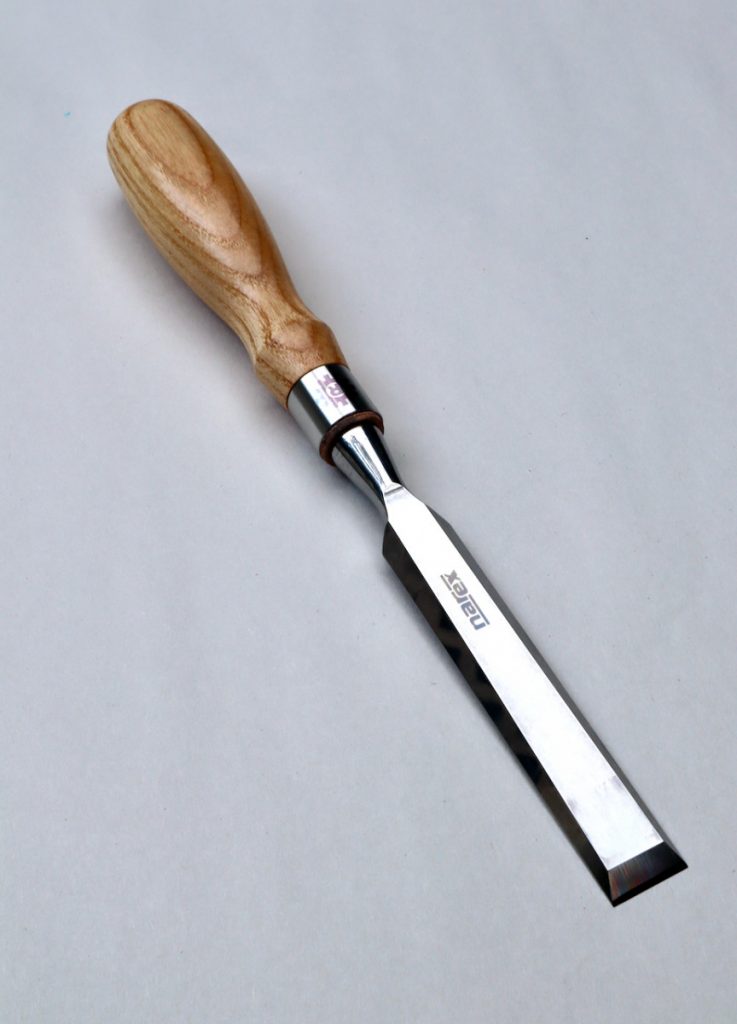
In late January Narex, the reputable Czech hand tool manufacturer sent me a box that contained three chisels for review. The sturdy but old fashioned stapled together gray cardboard box held three sleek jet black capsules that contained the new Richter line of bench chisels. It took me a few months and now I am finally able to release my review about this chisel in comparison to the STANLEY Sweetheart 750 socket chisel.
Unpacking the new Narex Richter chisels:
- Upon arrival, I took some pictures of the impressive packaging, which included a rust-inhibiting plastic bag, a good edge protector, and an instruction sheet.
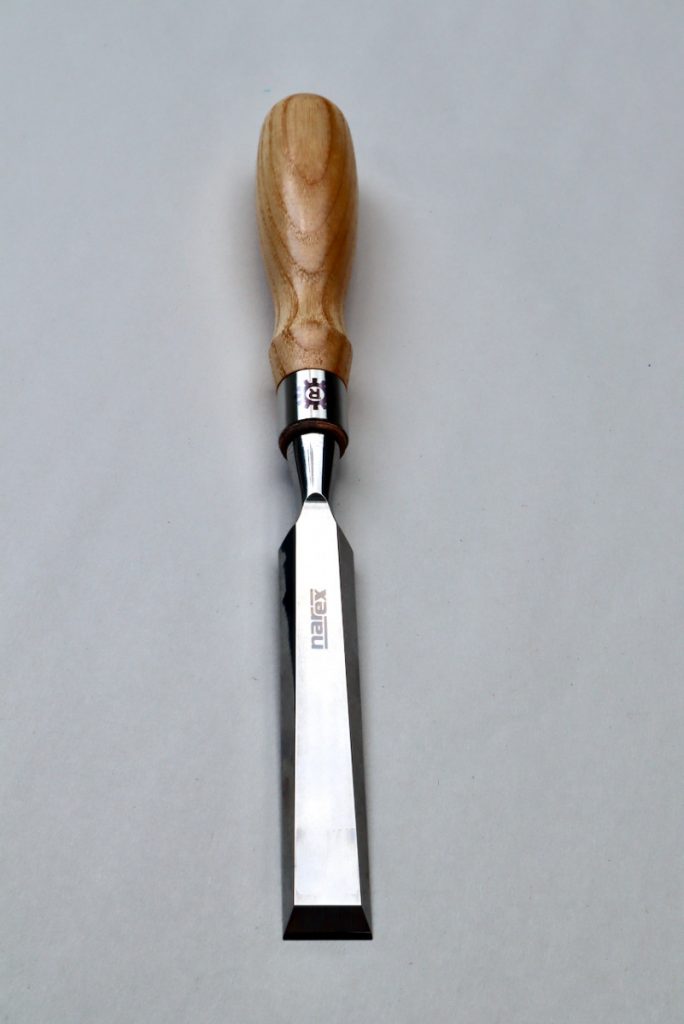
The Chisel’s blade is made from Chrome Vanadium steel, a steel that Narex is using extensively on most, if not on all, of their edge tools. The blade is heat-treated via a Cryogenic hardening process which is considered by many as the most advanced hardening process out there.

A year before the Narex box arrived I have learned that the company was intending to release a special line of high-quality bench chisels to celebrate their centennial anniversary. By incorporating the Cryogenic heat-treating process these chisels were destined to have a higher quality of hardening that would render them with an exceptionally tough and long-lasting edge. They were intended to have a new and comfortable handle design that included a stainless steel ferrule and a leather shock-absorbing washer over the bolster. And lastly, the factory promised to push the manufacturing envelope even further to ensure that the blade’s cross-section trapezoid geometry will be uniform and crisp, and thus allow it to sleekly slide into tight dovetails corners.
In full disclosure: I have a friendly relationship with Filip Stanek, who in the last fifteen years became the lead driving force behind Narex’s success. So when I learned that the new Richter line was finally out I emailed him and he in return sent me three chisels for review. The ones I got were the ¼’, ⅜” and ¾”, of which I decided to review the ¾” – as it is I believe one of the most versatile chisel’s size we reach out for on a daily bases.
At an average price of $35 dollars, the Richter is placing itself in mid-price point, on a par with the new Stanley 750 socket chisel, the MK2 Ashley Iles, and the German-made Two Cherries. It is more expensive than the standard Narex bench chisel or other mass-produced big-box store chisels, and yet it is $20 cheaper then the acclaimed American made Lie Nielsen chisel.
The feel, look, and finish of the chisel is impressive. The metal is mirror polished, the back is flat and the edges of the side bevels (along the length of the blade) are kept at a minimum. This feature which I mentioned before is critical for enabling the chisel to excel in tight corners. While Narex managed to make the blade’s base corners very narrow, they also kept them away from being scary sharp. This is important, as you don’t want to risk cutting your hand while grabbing the blade or guiding it while paring wood.

The Richter chisel has a flat and smooth back.
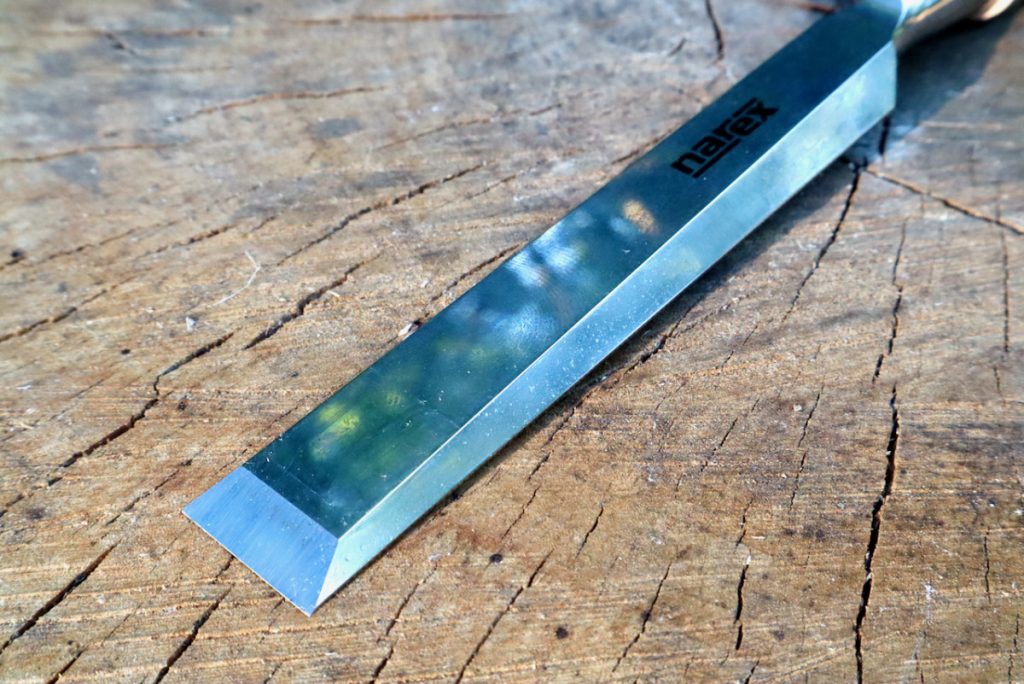
The Richter’s chisel has a true bevel edge that slopes sideways and culminates into a crisp corner.
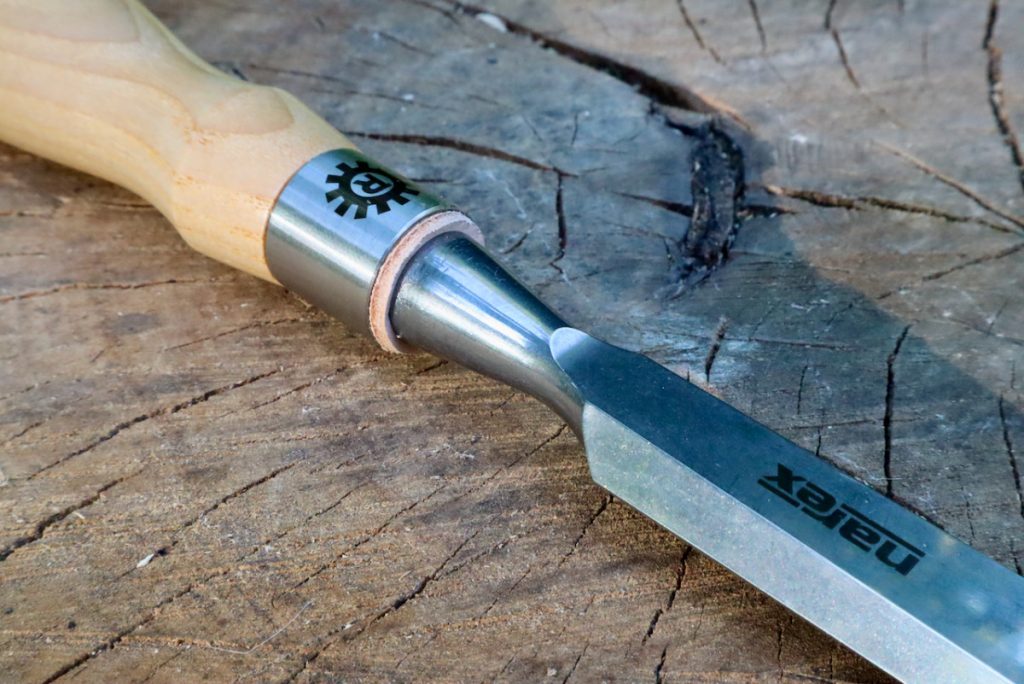
A leather washer is inserted over the tang and is heeled against the bolster to provide some cushioning. The washer is intended to dampen the thrust shock between the blade and the wooden handle when the chisel is struck by a mallet.

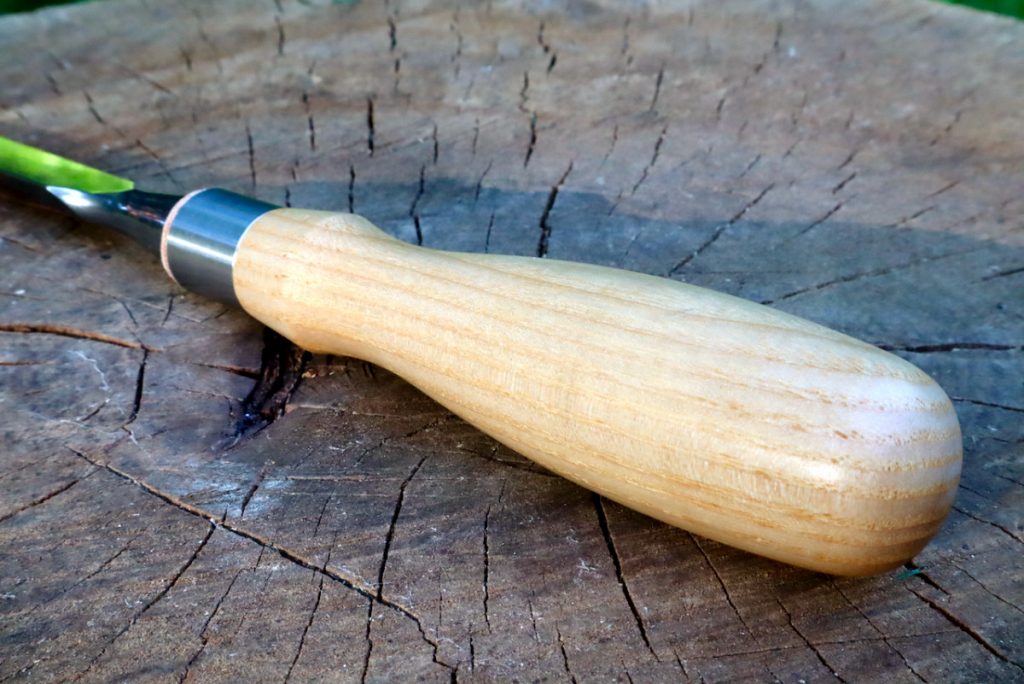
The ergonomic handle is made from ash.
Here are a few images of the Stanley 750 chisel which is the main competitor to the Narex-Richter:
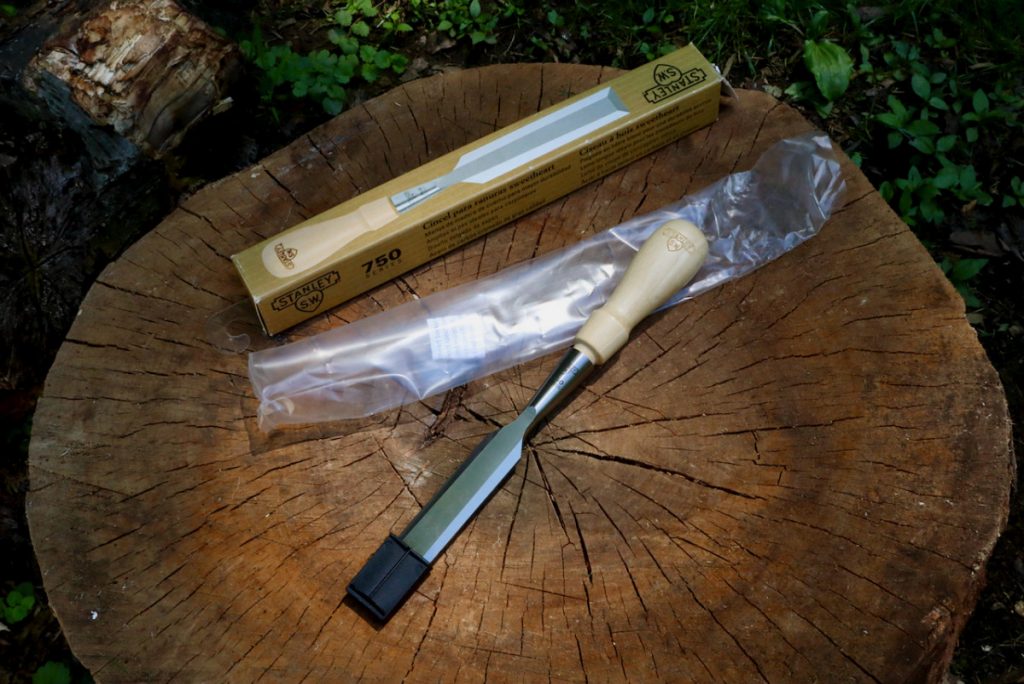
Together with the Two Cherries bench chisel, the Stanley Sweetheart 750 socket bevel edge chisels were perhaps the only chisels in the mid-range price. Neither the Stanley nor the Two Cherries have a true bevel edge.
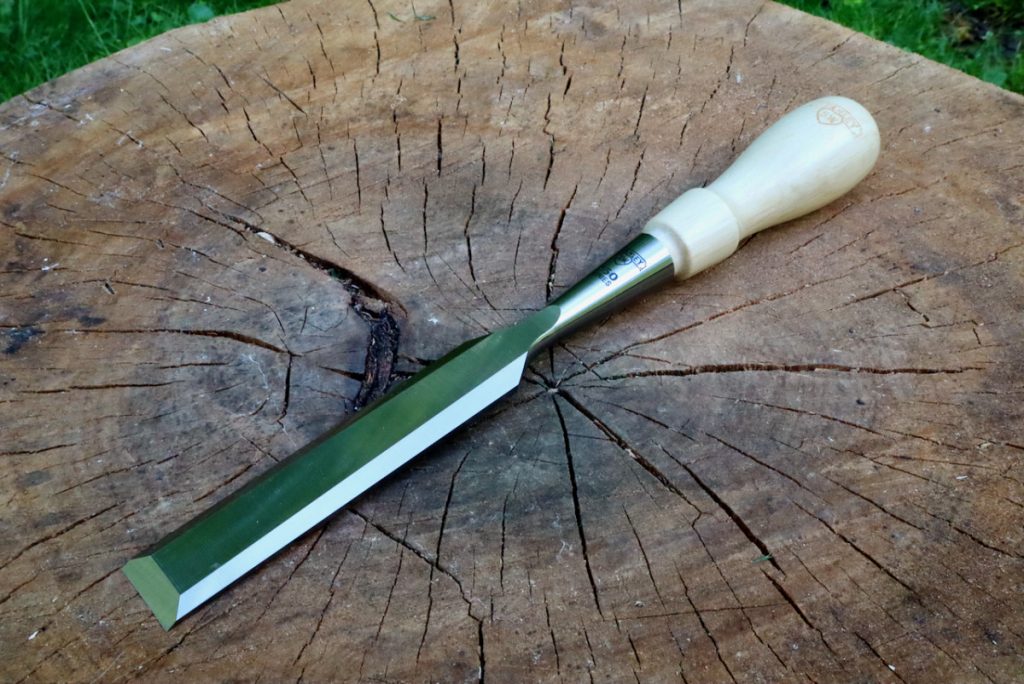
The Sweetheart 750 socket bevel edge chisels
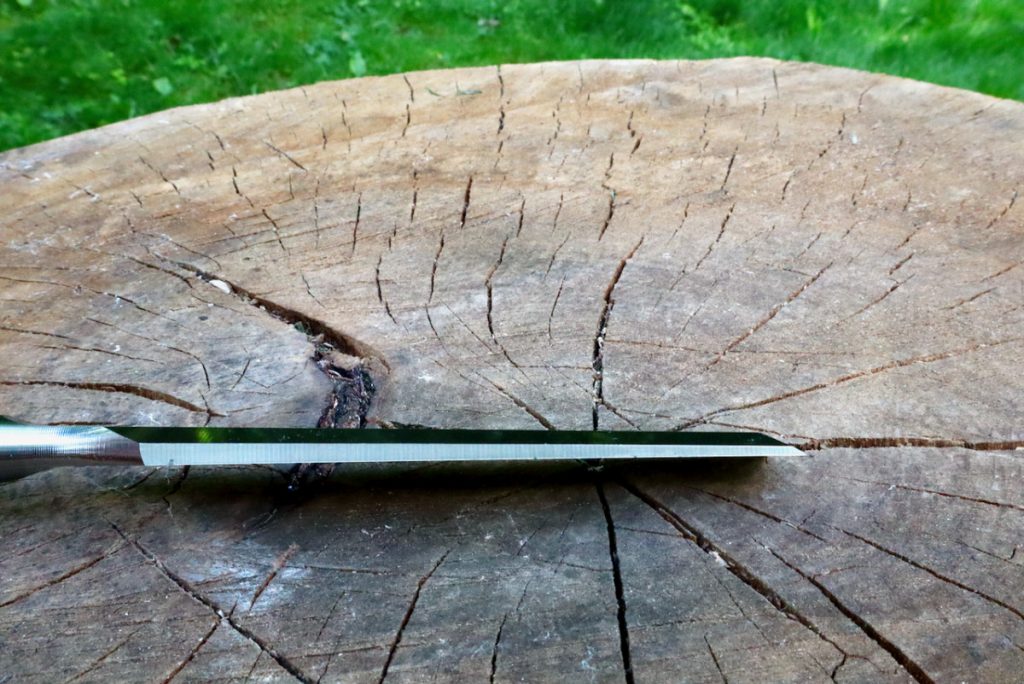
The Stanley bevel edges end abruptly into a substantial Land (an upright wall).

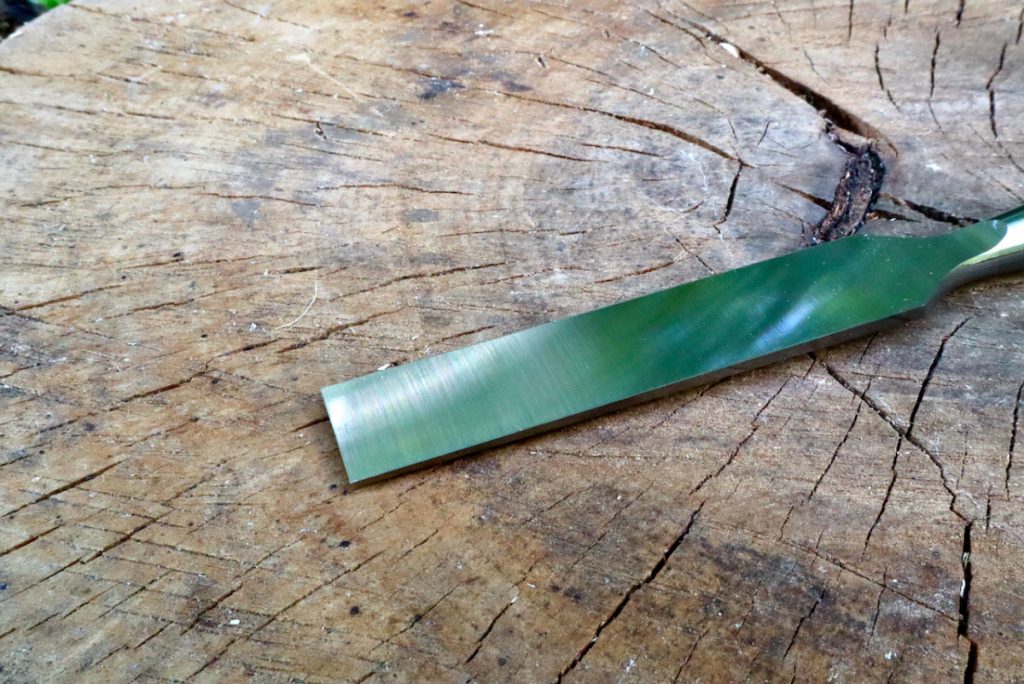
Unlike the Richter, the Stanley blade leaves the factory unpolished.
Side by side comparison of the Richter and the Stanley:
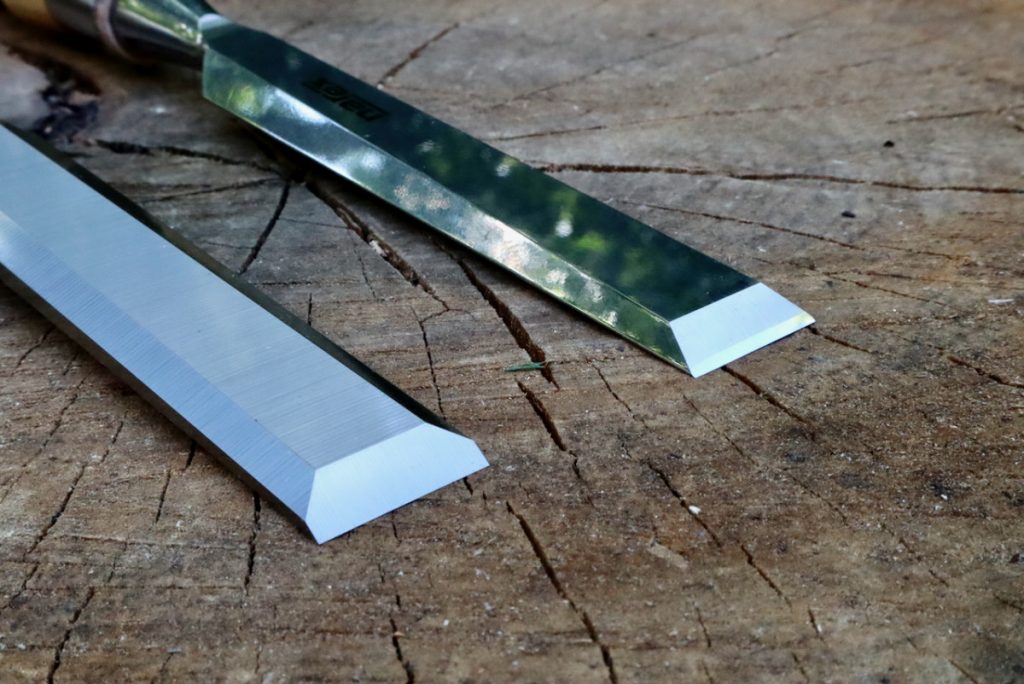
In contrast to the crisp Land or bevel edges of the Richter’s blade (at right), Stanley’s bevels are sloping towards the back and abruptly end with a right angle “wall”, such as the one we see in baseline quilty chisels.
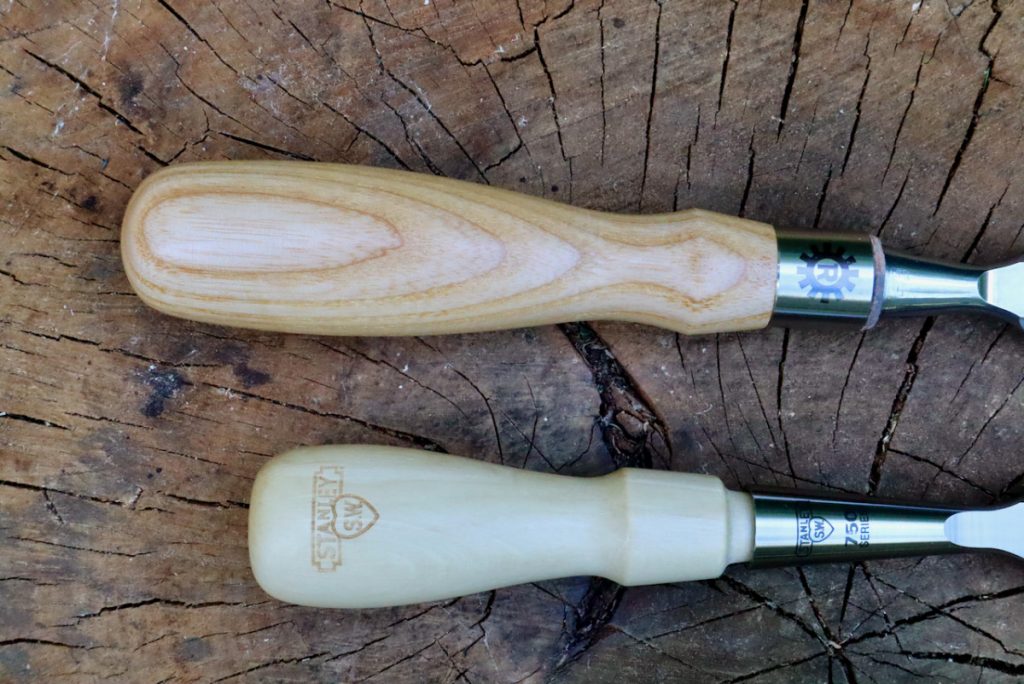


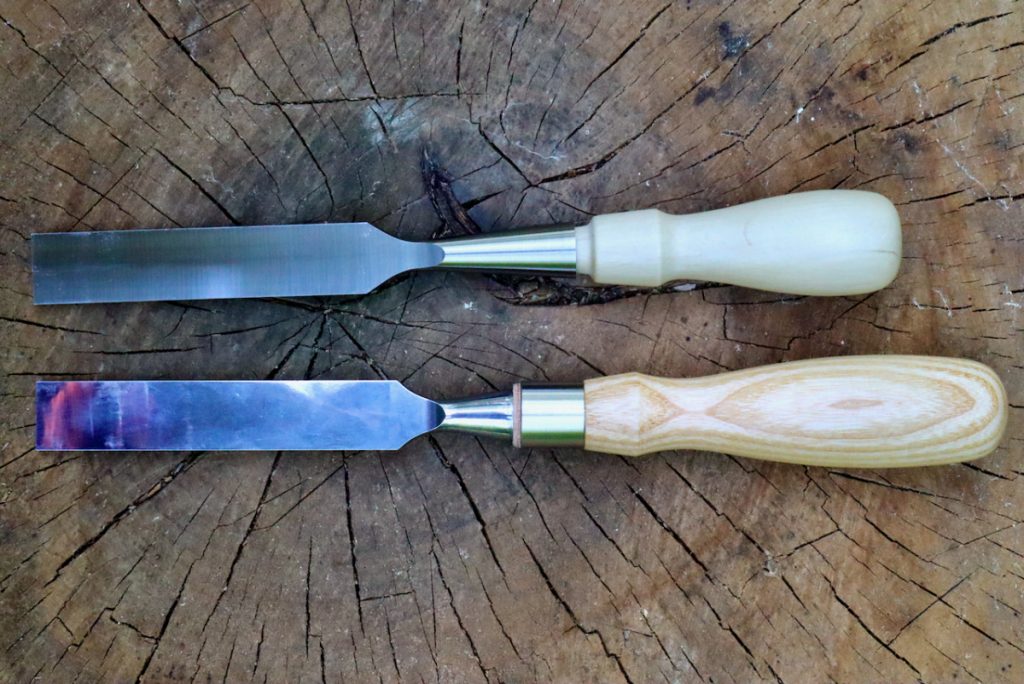
Narex makes an array of chisels, some of them have blades with “walled” bevel edges (see picture below), while the more advanced designs, such as the one that is sold by Lee Valley are milled to incorporate a bevel that culminates into a very narrow edge. In the Richter line of chisels, Narex went even further and narrower the corners of the bevel edge to a minimum but strayed short of making edges that are too sharp to hold and handle.
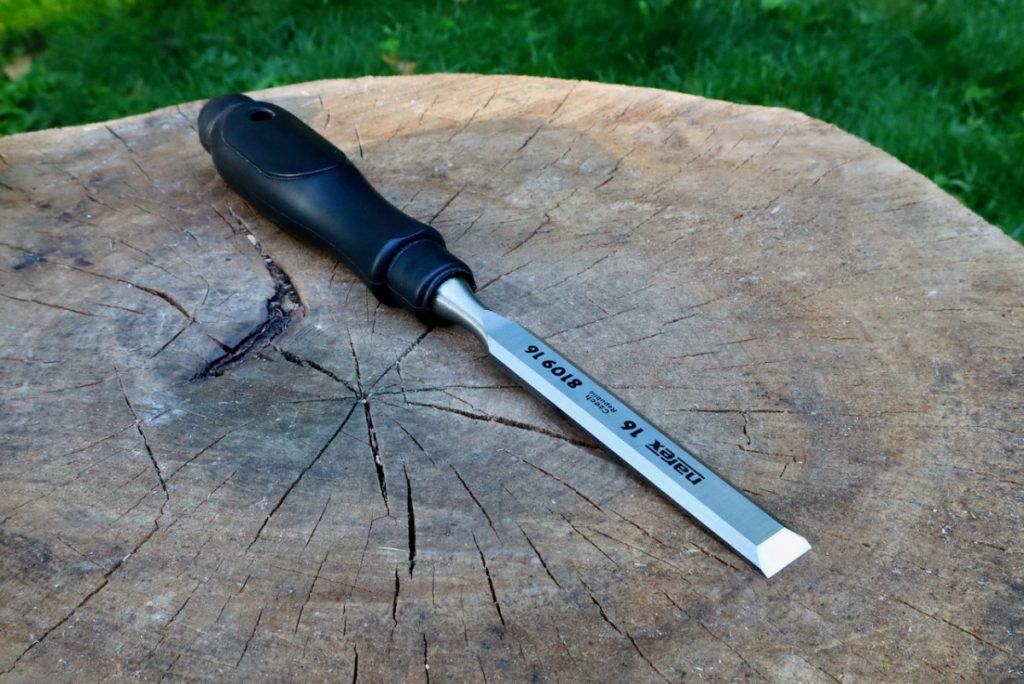
This Narex bench chisel is not sold in North America. It has a “walled” bevel edge.

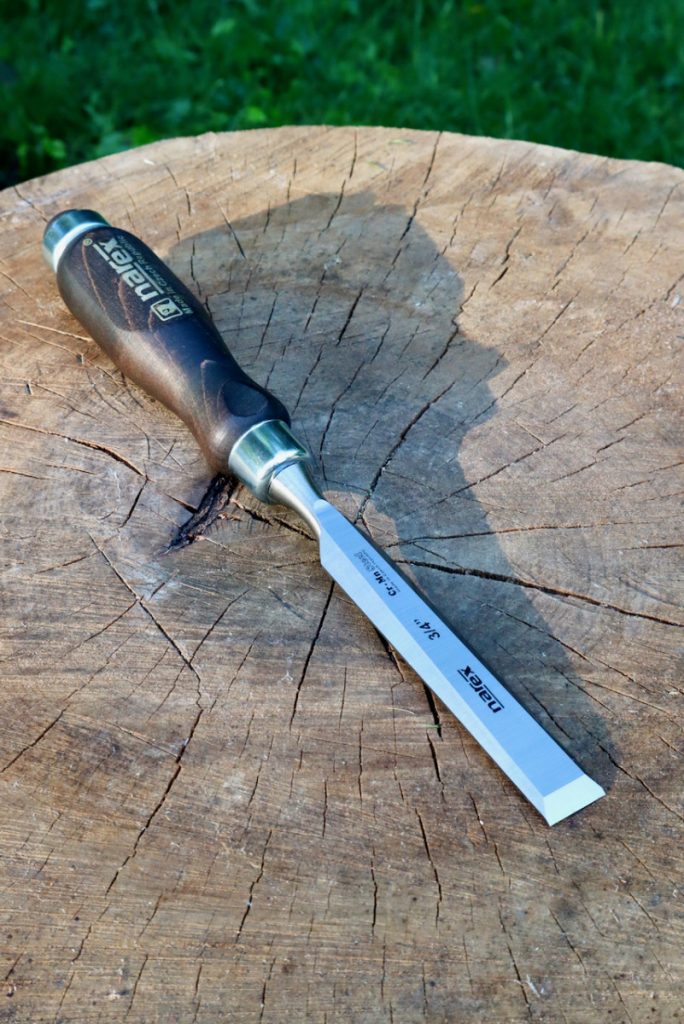
Lee Valley sells a Narex chisel whose edges are milled much closer to a true bevel edge. 
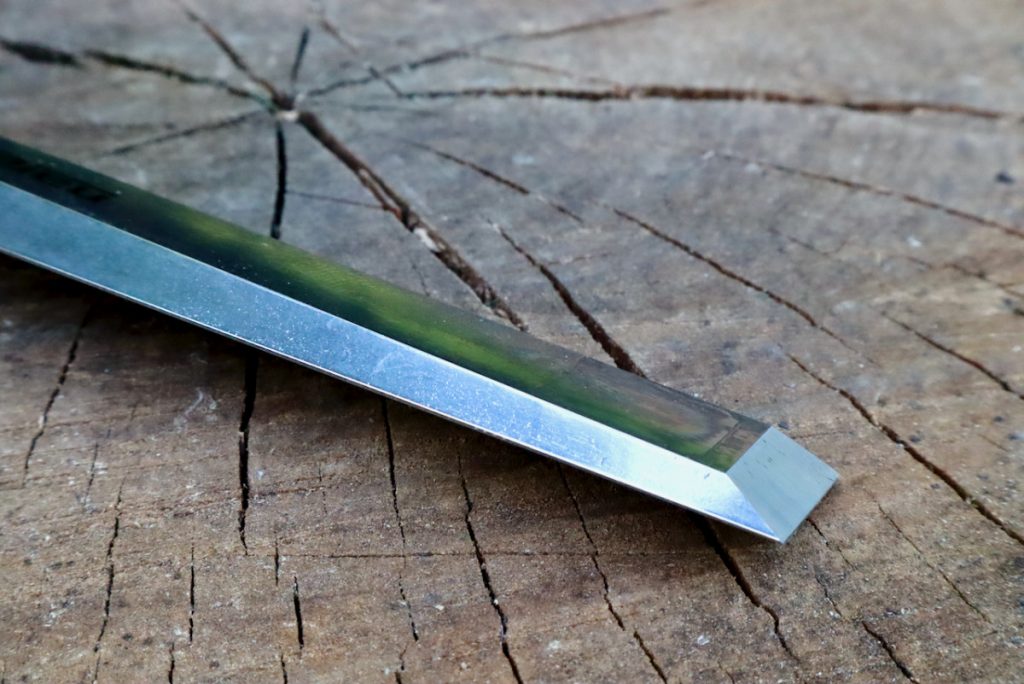
Only the Richter chisels can be considered as true bevel edge chisels.


With all due respect to the superb geometry, material choice, and the attractive aesthetic and comfort of both handle and blade, the proof of this Czech pudding will be in the slicing performances and the edge retention qualities of the blade.
Next time I will show how I sharpened both the Richter chisel and its Stanley competitor and prepared them for their edge to edge tournament.
Here are some supplies and tools we find essential in our everyday work around the shop. We may receive a commission from sales referred by our links; however, we have carefully selected these products for their usefulness and quality.



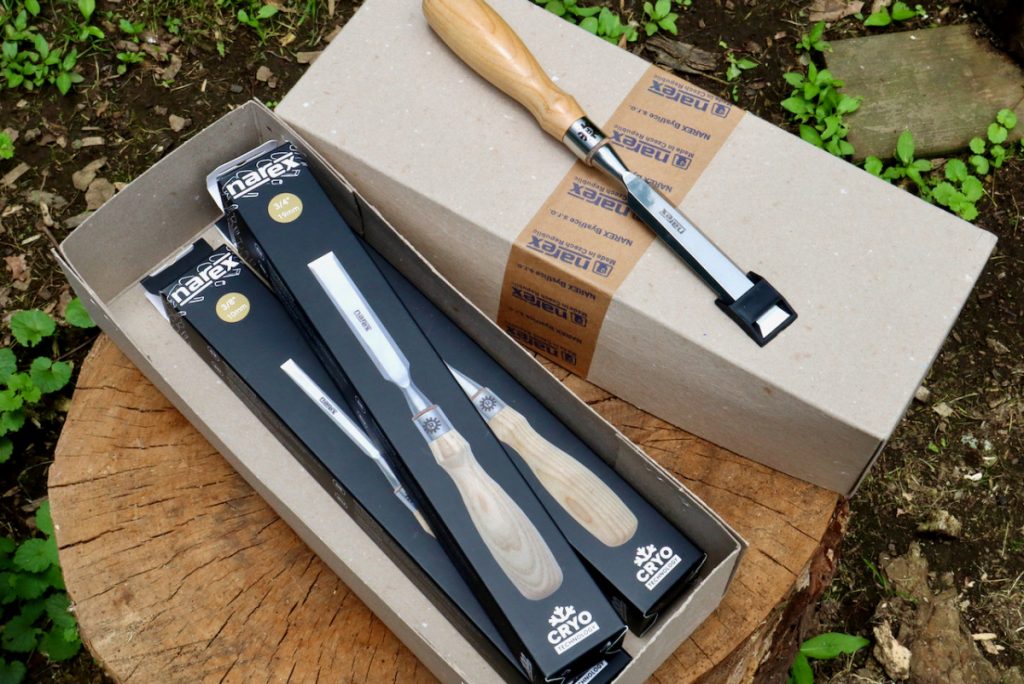









Right here is the problem with tool reviews where the manufacturer provides the tools. I was very excited about the new Narex Richter chisels and purchased a full set. EVERY SINGLE ONE had a ridiculously convex belly for a back. Now all but one have a ridiculously convex belly for a back, because one is how many I’ve gotten flat in the weeks since I bought them. I should have returned them, but the one I’ve gotten flat is a fantastic chisel.